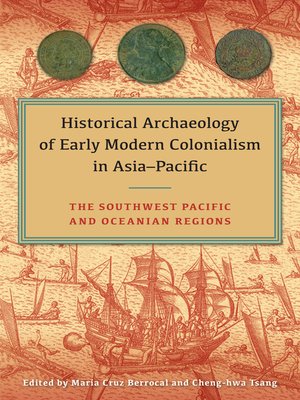Historical Archaeology of Early Modern Colonialism in Asia-Pacific
ebook ∣ The Southwest Pacific and Oceanian Regions
By Maria Cruz Berrocal

Sign up to save your library
With an OverDrive account, you can save your favorite libraries for at-a-glance information about availability. Find out more about OverDrive accounts.
Find this title in Libby, the library reading app by OverDrive.



Search for a digital library with this title
Title found at these libraries:
| Library Name | Distance |
|---|---|
| Loading... |
The history of Asia-Pacific since 1500 has traditionally been told with Europe as the main player ushering in a globalized, capitalist world. But these volumes help decentralize that global history, revealing that preexisting trade networks and local authorities influenced the region before and long after Europeans arrived.
In the volume The Southwest Pacific and Oceanian Regions, case studies from Alofi, Vanuatu, the Marianas, Hawaii, Guam, and Taiwan compare the development of colonialism across different islands. Contributors discuss human settlement before the arrival of Dutch, French, British, and Spanish explorers, tracing major exchange routes that were active as early as the tenth century. They highlight rarely examined sixteenth- and seventeenth-century encounters between indigenous populations and Europeans and draw attention to how cross-cultural interaction impacted the local peoples of Oceania.
The volume The Asia-Pacific Region looks at colonialism in the Philippines, China, Japan, and Vietnam, emphasizing the robust trans-regional networks that existed before European contact. Southeast Asia had long been influenced by Buddhist, Hindu, and Muslim traders in ways that helped build the region's ethnic and political divisions. Essays show the complexity and significance of maritime trade during European colonization by investigating galleon wrecks in Manila, Japan's porcelain exports, and Spanish coins discovered off China's coast.
Packed with archaeological and historical evidence from both land and underwater sites, impressive in geographical scope, and featuring perspectives of scholars from many different countries and traditions, these volumes illuminate the often misunderstood nature of early colonialism in Asia-Pacific.







